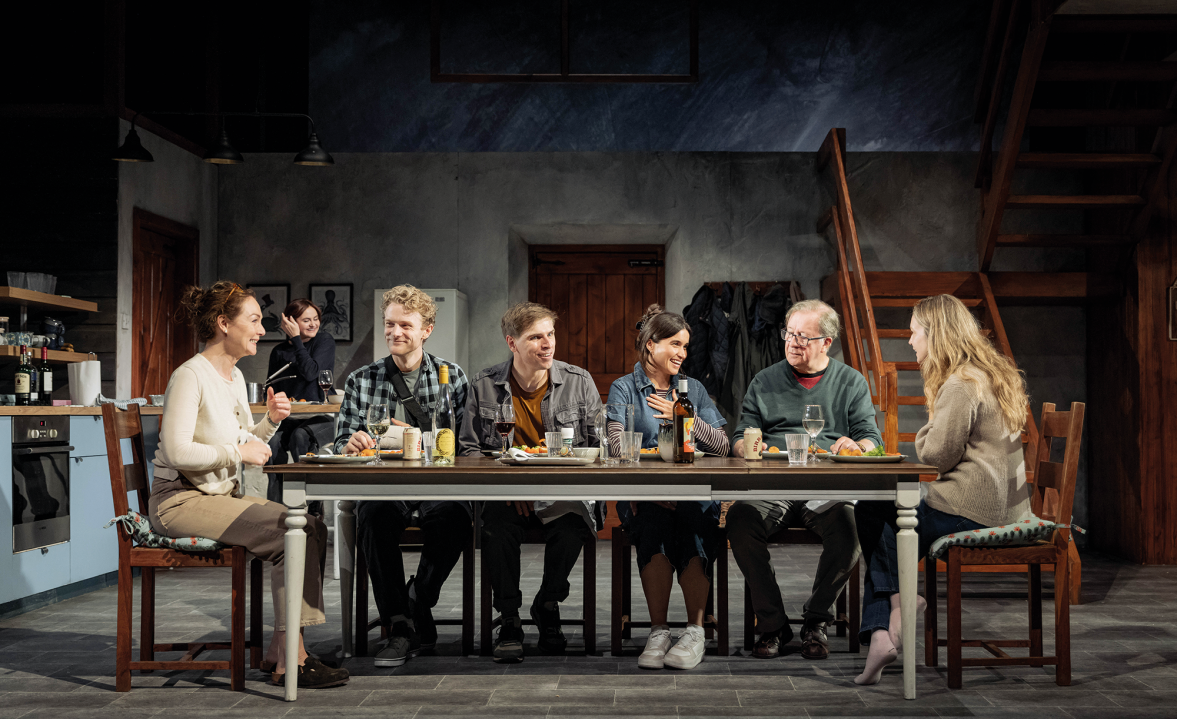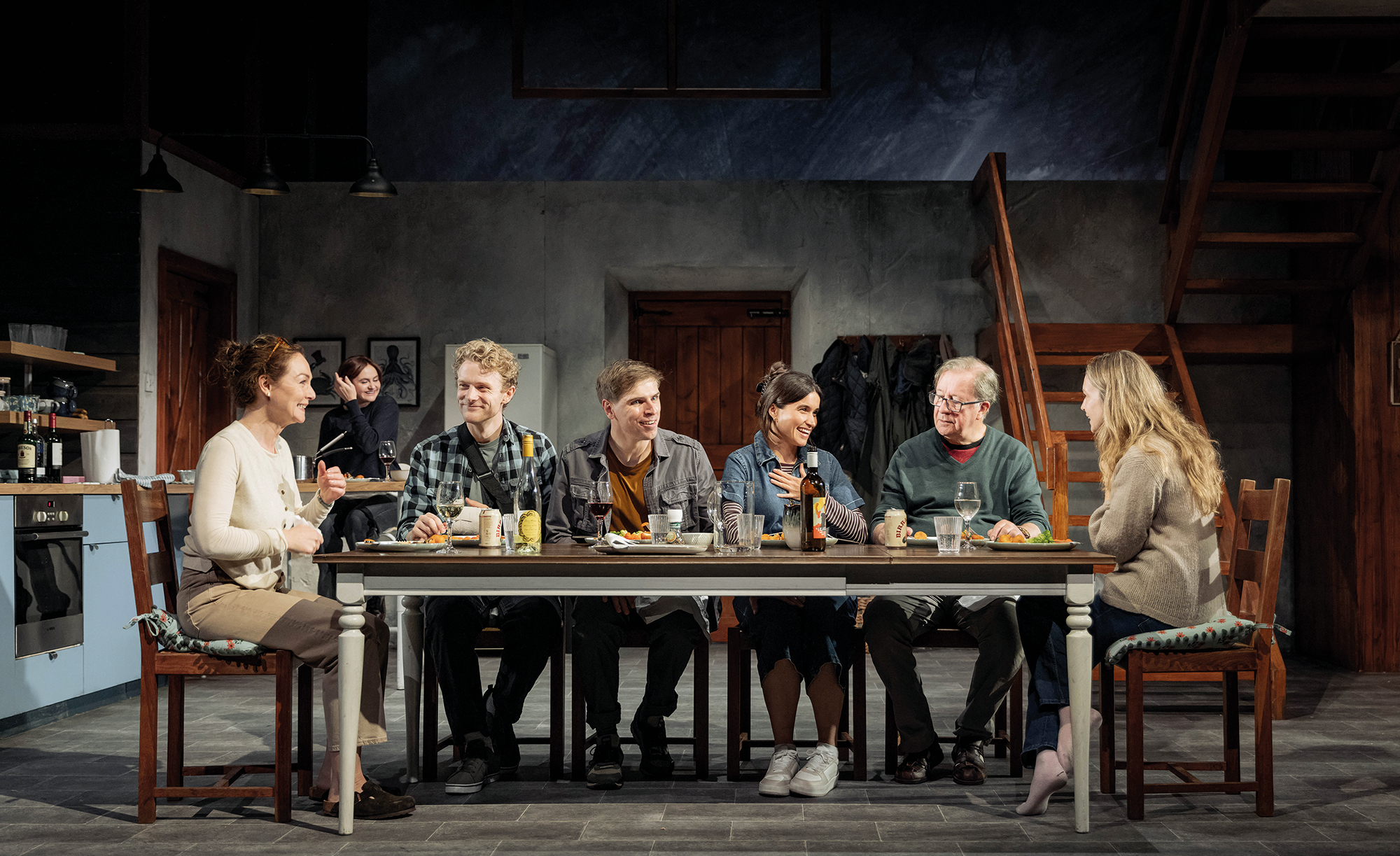
What a coincidence. Two plays running in London have the same storyline: an obsessed lover bursts into a family gathering to reclaim the woman who spurned him.The Lady from the Sea, written and directed by Simon Stone, is based on a late drama by Ibsen. Alicia Vikander stars as the neurotic Ellida, who feels repelled by her charming, erudite, handsome and successful husband, Edward. Ellida can’t shake off the memory of a fat, bearded eco-warrior, Finn, who raped her when she was 15. And when Finn shows up at her beautiful home in Cumbria, she has to choose between Edward (Andrew Lincoln) and her rapist (Brendan Cowell). It’s Paul Newman vs Shrek.
Naturally Ellida chooses Shrek. After all, this is Ibsen. Poor Edward has other problems. While not appeasing the dotty Ellida, he has to deal with his brattish teenage daughters, Hilda and Asa. Hilda has fallen in love with her terminally ill cousin, Heath. And she can’t wait for him to enter a hospice so she can watch him die. Asa, who works as a porn star, has accepted a scholarship at Yale to study philosophy. Edward begs her to turn Yale down and to stay in the family home which is lavishly furnished with chic white furniture.
After the interval, it’s all change. The white furniture has turned black. So has the floor, the transistor radio and the lamp. Even the flowerpots are black. The mood has darkened, clearly. On come the sprinklers. Now it’s raining. Sheets of water pour down for 45 minutes – perhaps the longest rainstorm in theatre history. Strokes of lightning, claps of thunder and swells of ominous music add to the depressing mood. Characters in anoraks wander through the monsoon screaming and swearing at other anoraked characters. All of them are fixated with their petty whims and tantrums, like grown-up babies.
Edward is the only adult on stage but he’s very hard to like because he’s so squashy and spineless. Some of the dialogue is funny. The dying Heath regrets that he’ll never visit South America. ‘And two years ago I made the mistake of becoming an atheist.’ These comic ramblings endear him to Hilda who kisses him passionately. But Heath is impotent, or so he claims. At the peak of the drama, the stage changes shape and becomes a drainage ditch surrounded by a rain-soaked embankment. Two characters have sex in the ditch without removing their clothes. Meanwhile, in another part of the ditch, two male characters get drunk and reminisce about narcotics and love affairs.
The reliance on flashing lights and power-showers to create emotion suggest the script is devoid of feeling
In the closing scene, the ditch turns into a swimming pool. And the characters deliver a series of revelations that completely overturn the foregoing storyline. The direction is laughably bad. Stone’s reliance on flashing lights and power-showers to create emotion suggests that the script is devoid of true feeling. And how did Andrew Lincoln get stranded here? He’s a terrific asset to British theatre and he ought to be playing classical roles rather than spending his time on this glib, overwrought catfight.
Reunion, at the Kiln, is set in a cottage in the west of Ireland where a family of wealthy Dubliners spend their holidays. The cast of ten feels a little unwieldy but the writer-director, Mark O’Rowe, knows his business. He places three couples at the centre of the drama and appoints a matriarch, Elaine, as the umpire. She invites her family to honour the memory of her late husband, Sean, but this quickly gets forgotten as the couples start to bicker and argue. Ancient battles resurface. Secret liaisons are contracted. The cottage turns into a nest of plotters and faithless lovers. The tension is brilliantly orchestrated. At any moment, the wrong character could walk into a room and find a clandestine affair in progress.
This artistic feat, the emotional convergence between the viewer and the character, is the essence of theatre
O’Rowe likes to use misdirection. The spurned lover, Aonghus, arrives to meet his former girlfriend, Marilyn, and to have a friendly chat about the old days. Aonghus is now a successful poet who earns enough money to support his German wife and their young child. But he’s lying. And when the truth emerges, fisticuffs erupt. The fighting – which is no more than a bit of pushing and shoving – is very realistic, like everything else in this play.
In the closing scene, a female character gathers her luggage and leaves the cottage without saying goodbye to a male character. One word between them would change the entire story. As you watch, you long for the woman to say something to the man. But she doesn’t. And you feel cheated and horrified. So does the man. This artistic feat, the emotional convergence between the viewer and a character, is the essence of theatre.
An amazing piece of entertainment. The play premiered at the Galway International Arts Festival last July. The Kiln is probably just a brief halt on its continuing journey.









Comments